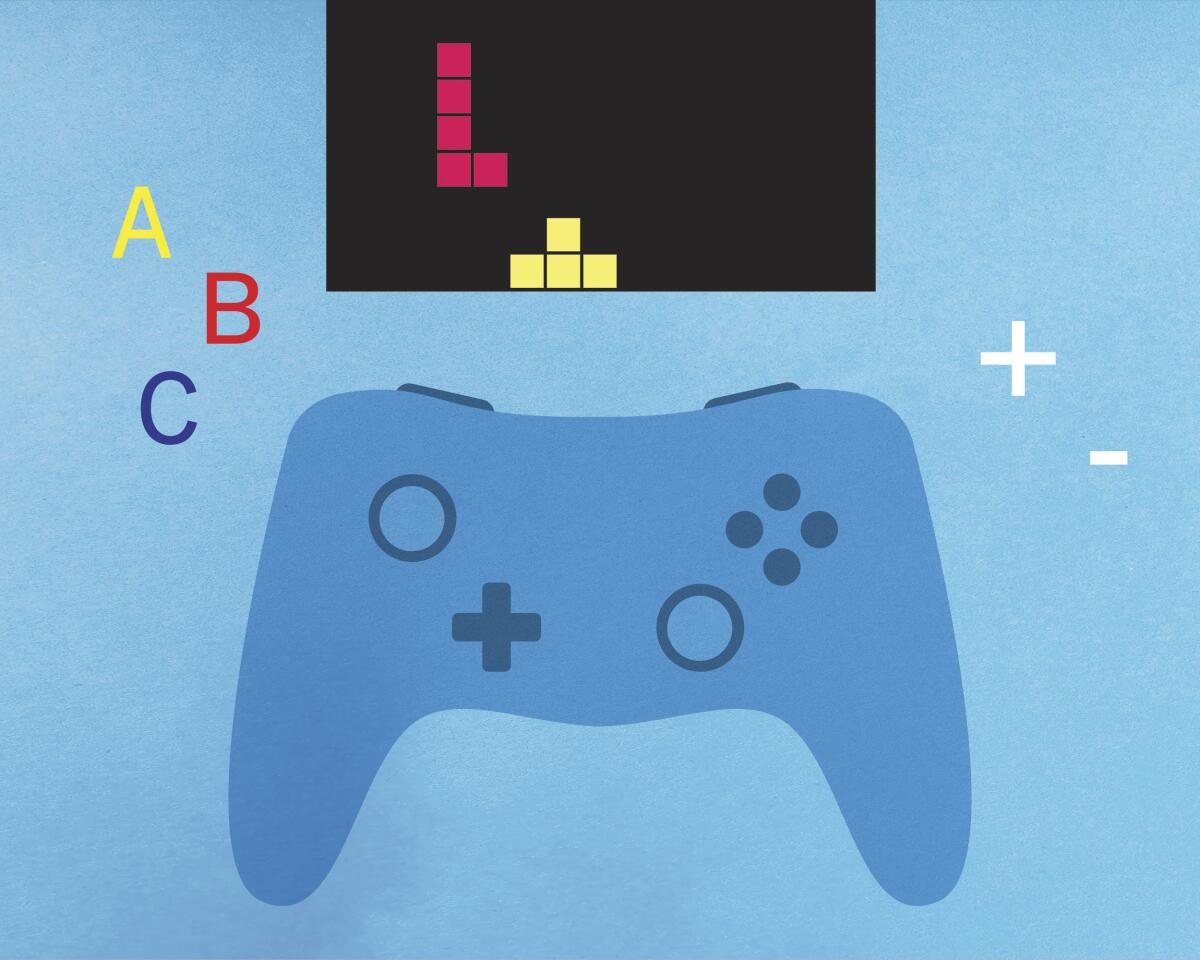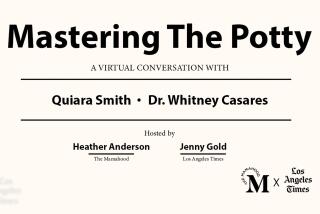Op-Ed: How much do kids learn from ‘educational’ video games? A ratings system could address that

Before the pandemic, the average American child between 8 and 18 played video games for an hour and 20 minutes a day, and if my kids are representative, that figure skyrocketed this past year. Like many parents, I gave in to increased gaming time but gravely told my children they should choose educational games.
Unlike many parents, I knew my rule made no sense. I study learning for a living, and it’s usually impossible to know what, if anything, kids will learn from a video game based on a simple description of it. Gaming companies should tell us, and while that may sound like the fox guarding the henhouse, there is a model that could make it work.
The Entertainment Software Rating Board rates games for objectionable content like sex and violence. That’s helpful, but it should be as easy for parents to guide their kids toward enriching games as it is to shield them from unacceptable ones. A similar board should rate educational content.
Here’s why parents need help. Most educational games don’t simply teach academic content (like math or history) and test kids to be sure they’ve got it. Kids learn from such games, but they can be boring, like a worksheet with animated characters. They’re derided in the industry as “chocolate-covered broccoli.”
To make them fun, game creators either make the content less academic (and claim education will still benefit) or remove the tests (and claim kids will still learn). But the effect of either change on learning is unpredictable.
People have long believed that games can make you smarter if they’re mentally challenging. Leaders in the former Soviet Union touted chess to citizens in the 1930s for that reason, but research shows that playing chess brings no benefit to schooling.
Today, some games are designed to tax working memory — the ability to juggle information in the mind. Improved working memory would be a boon because it’s important to reasoning skills. But playing such games makes you better only at similar games; it doesn’t strengthen working memory.
Yet on occasion the strategy works. Games that demand spatial thinking, like solving jigsaw puzzles or playing Tetris, do improve spatial thinking skills, an ability linked to success in math and science.
Other games may feature recognizable academic content but not quiz players on it. For example, a game may showcase a painstakingly accurate rendering of the Notre Dame Cathedral, but the player needn’t learn about the architecture to succeed in the game.
Guest host Deborah Netburn shares her journey from ignorance to understanding, through playing video games with her son during the pandemic.
If you don’t have to learn it, why would you? Much of what’s in your memory stuck because you thought about it, not because you were quizzed on it. That’s why you know Jill Biden’s profession and whether Prince Harry is married. And that’s why kids learn from educational television programs like “Sesame Street” and “Blue’s Clues,” even though the programs don’t quiz viewers.
But exposure doesn’t guarantee learning. Despite seeing thousands of dollar bills, you may not know precisely where “In God We Trust” is written on them. Similarly, we can’t be sure kids will learn something just because it’s in a game. They have to think about it, and that’s guaranteed only if the information is crucial to playing.
Even then, “will they think about it?” isn’t always obvious. For example, in the game “Roller Coaster Tycoon” players build virtual roller coasters that obey laws of gravity, inertia and so on. Some reviewers laud the educational value, but the laws of physics are so unintuitive, it’s more likely gamers play by trial and error. And predictably, some players actually relish crashes.
A game description is not enough to tell parents what, if anything, their child will learn. Someone who understands cognition needs to evaluate gameplay. The video gaming industry could arrange for that.
An obvious concern is that the industry will deem every game educational, even if learning is limited to “increased thumb dexterity.” But the Entertainment Software Rating Board, which has rated games for objectionable content since 1994, has avoided bias and earned praise from the Federal Trade Commission.
An industry lobbying group created and oversees the board, but it remains independent. Game makers submit a detailed description of a new game, which is then evaluated by three professional raters. The board offers an overall age recommendation and information about the presence of objectional content in 30 specific categories, for example “alcohol reference” and “crude humor.”
Experts in learning could create ratings for educational content. The categories would tell parents the topics their child might learn about, including whether the learning is likely to transfer beyond the game. The rating would assess the likelihood that learning should actually happen, based on an analysis of gameplay.
This information could be added to parental controls that are already integrated into mainstream gaming systems and which many parents already use to limit gaming time.
I don’t think my kids need to learn something from every leisure activity, but it would be nice to know more about the games I’m greenlighting. Given the enormous cultural influence of gaming companies, they owe parents that much.
Daniel T. Willingham is a professor in the department of psychology at the University of Virginia.
More to Read
A cure for the common opinion
Get thought-provoking perspectives with our weekly newsletter.
You may occasionally receive promotional content from the Los Angeles Times.







